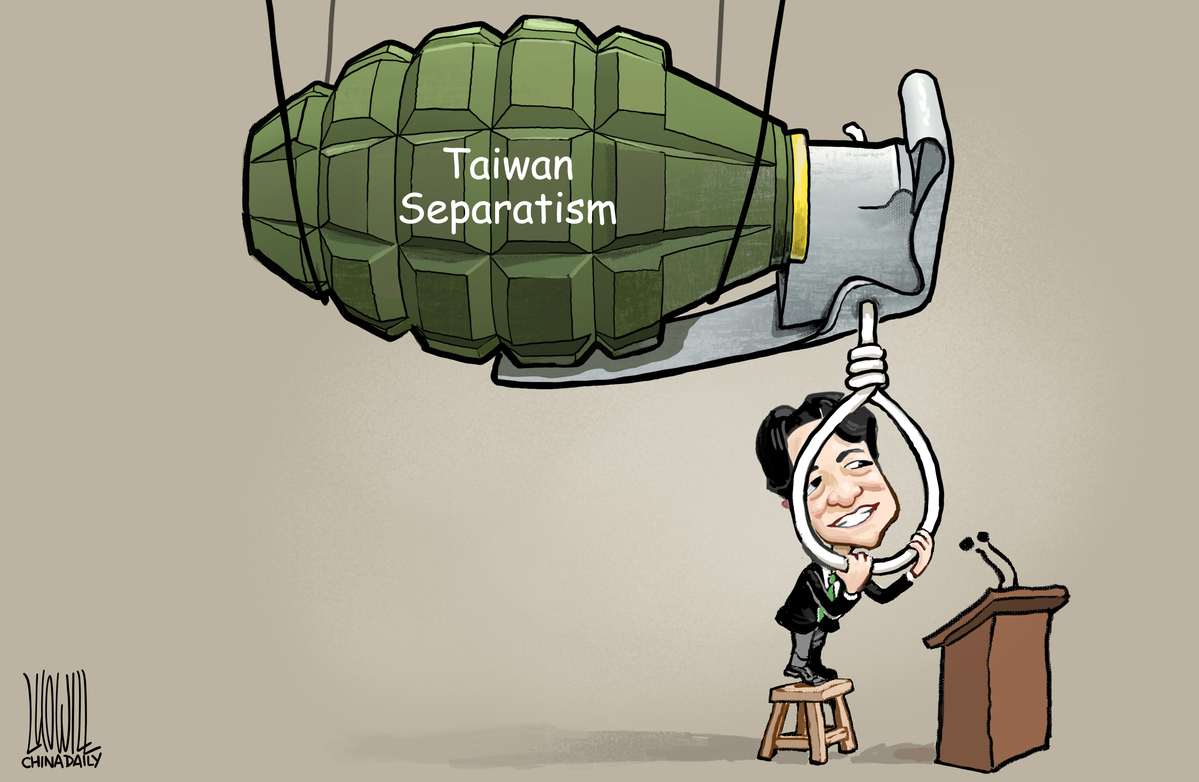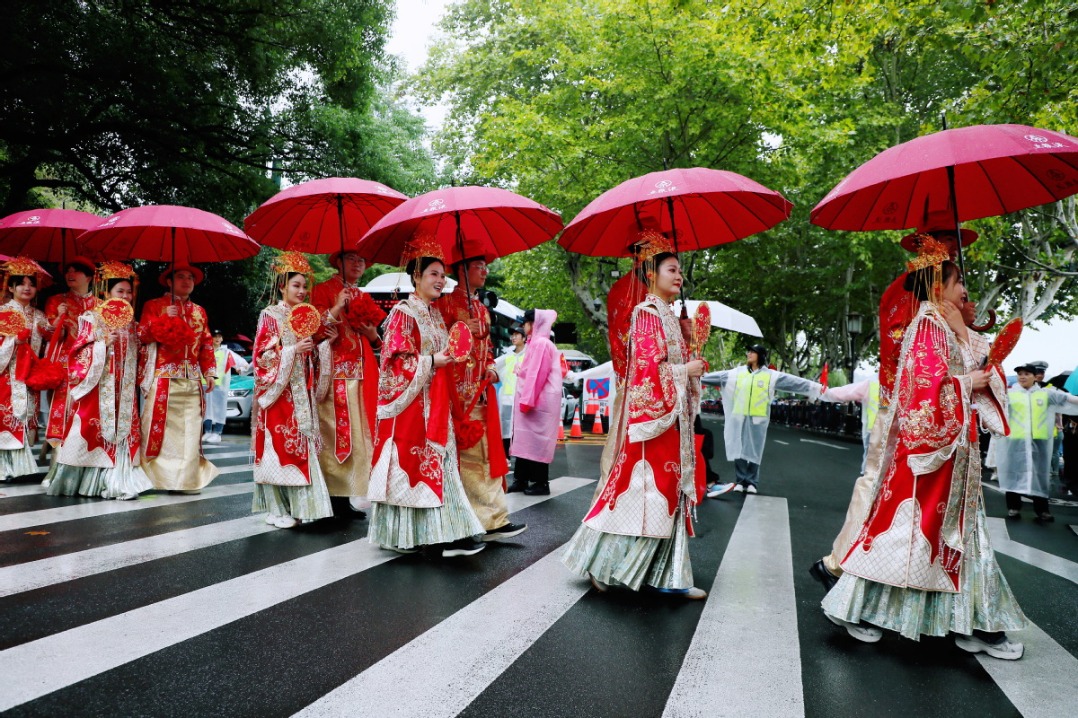Lai's speech reveals a true troublemaker

Editor's Note: Taiwan leader Lai Ching-te's speech on Thursday, which was a self-proclaimed championing of "peace and democracy", is poised to exacerbate cross-Strait tensions and expose the island to significant risks. Experts share their views on Lai's speech with China Daily. Excerpts follow:

'Victim card' to draw West's sympathy
After taking office, Lai Ching-te's first "Oct 10 Speech" coincided with a crucial moment in the upcoming US presidential election. Therefore, his speech did not directly provoke cross-Strait relations with more radical expressions. Instead, he stuck to the "two-state theory" tone he had set during his "inaugural speech" while focusing on promoting "national normalization" as the main theme. He called for unity within the island, increasing Taiwan's exposure internationally, and continued to emphasize the "Chinese mainland's threats" in cross-Strait relations. His aim was to create a sense of victimhood to garner sympathy from anti-China forces in the West.
In his speech, Lai Ching-te advocated for "further assuming Taiwan's significant geopolitical responsibilities and maintaining the current peaceful and stable situation in the Taiwan Strait". He claimed that Taiwan holds important geopolitical responsibilities and emphasized Taiwan's willingness to contribute to regional peace and stability. However, "geopolitical responsibilities" are merely a cover-up for his plan to seek independence through external forces while resisting reunification. By emphasizing Taiwan's importance in the region, he wants to make the island's residents believe that Taiwan can find its place in the complex international environment under his leadership. In reality, this approach will only worsen the situation in the Taiwan Strait, leading to more instability and danger in cross-Strait relations.
Zhu Songling is a professor at the Institute of Taiwan Studies, Beijing Union University.


































